79 F. high in the Twin Cities Saturday.
82 F. average high on August 9.
76 F. high on August 9, 2013.
Trace of rain fell at MSP International Airport Saturday.
August 9 in Minnesota Weather History (from the Twin Cities National Weather Service).
2004:
Cool Canadian air was ushered in on strong northwest winds.
International Falls had its coldest high temperature ever for this date
with 49 degrees. The Twin Cities only saw a high of 59.
1939: Cloudburst at Two Harbors. 5.2 inches of rain fell.
Weather Psychology 401
Have
you ever noticed that the weekend forecast often tends to be gloomier
than what's predicted for weekdays? There's a reason for any on-air or
online pessimism.
If the weather turns out better than expected
people shrug and feel like they caught a break. But if the skies
overhead are worse than advertised in the 7-Day Outlook? Not good.
Nobody likes unpleasant surprises. So there may be some temptation to
err on the side of a gloomy weekend forecast. Just saying...
Our
challenges are two-fold: knowing which models to trust to actually
predict what the sky will look like tomorrow. And then choosing the
right words to communicate this accurately. Yes, "an isolated shower"
means something altogether different than "rain".
A murky,
partly-disappointing Saturday gives way to a line of PM T-storms today.
Not an all-day rain, but have a Plan B for a few hours later on. The dew
point drops from mid-60s today to mid-40s by Tuesday, meaning half as
much water in the air within 48 hours. Any hint of September gives way
to 80s the latter half of the week; Friday thunder marking the arrival
of a hot front next weekend. A few models are even hinting at 90
degrees.
Weather patterns are slow, sluggish and erratic. The jet stream appears hungover.
Summer 2014 is far from over.
Comfortable Start - July Flashback by Late Week?
Extended guidance shows a sticky, thundery Sunday giving way to a big
drop in humidity late Monday into Tuesday as Canadian air empties south
of the border, a 20-25 degree drop in dew point will conjure up images
of September. But summer stages a comeback by late week with 80s, even a
shot at 90F by the weekend. Don't write summer off just yet.
More June than August.
Although the severe storm risk is relatively small, numerous T-storms
push across the Upper Midwest into the Great Lakes and Ohio Valley;
another round of flash flood-producing storms from Atlanta into the
Carolinas. Most of the rain/storms may stay over western Minnesota much
of today. 4 KM NAM accumulated rainfall out 60 hours courtesy of NOAA
and HAMweather.
El Nino Relief For Drought-Stricken California? Chances Slip to 65% Will El Nino morph into El Nada? Here's an update from
The Los Angeles Times: "
The
latest long-term forecast shows the chances of a wet El Niño weather
pattern bringing drought relief to California starting this fall has
decreased to about 65%, and if it does arrive it will probably be weaker
than originally expected. If an El Niño does develop, it should emerge
by October and peak during late fall and early winter, according to the
Climate Prediction Center and the International Research Institute for
Climate and Society..."
Photo credit above: "
Comparison
photos showing the historic Millerton Courthouse as it sits atop a
bluff overlooking Millerton Lake in Friant, Calif. in 2009, top, with
the water at a high point, and on Aug. 5, 2014, where the water isn't
visible at the same angle. Currently, the level of water is at 270,284
acre feet or 51.9 percent of capacity." (AP Photo/Fresno Bee, Darrell Wong-2009, Craig Kohlruss-2014).
Get Used to Toilet-To-Tap Water, Californians Told. Suddenly I'm feeling better about Minnesota's historically wet June. Here's an excerpt from a story at
The Guardian: "
The
golden state’s historic drought is forcing once-squeamish Californians
to take a new look at “toilet-to-tap” water re-use. Or as they prefer to
call it in Fountain Valley, “showers to flowers”. The town in
conservative Orange County is home to the largest water recycling plant
in the world and an example during this epic drought of the
life-altering changes California will have to make to avoid running out
of water..."
Photo credit above: "
An operator
inspects the reverse osmosis facility, part of the groundwater
replenishing system in Orange County water district, in Fountain Valley,
California." Photograph: Ann Johansson/Corbis.
Major Storms Hit Hawaii After Lawmakers Raid Hurricane Fund. Here's an excerpt of a head-scratcher of a story, courtesy of watchdog.org and
sayanythingblog.com: "
As
Hawaii feels the brunt of two hurricanes this week, residents believe
any substantial damage could be alleviated by the state’s $126 million
hurricane relief fund. But that well has nearly run dry after the state
Legislature snatched the funds to balance the budget in 2011. The fund
was established in 1993, shortly after Hurricane Iniki slammed into the
islands of Oahu and Kauai on Sept. 11, 1992. That Category 4 hurricane,
the most powerful storm to ever hit Hawaii, killed six people and caused
$1.8 billion in damage. More than 1,400 homes on Kauai were destroyed
and another 5,000 homes severely damaged in the 145-mph winds..."
Why Are Hurricanes Rare In Hawaii? Cliff Mass
has an informative, timely article about hurricane frequency in Hawaii
and why they are the exception and not the rule; here's an excerpt: "...
The
main reasons: the water temperatures are generally too cool and there
is often too much vertical wind shear, the change in horizontal winds
with height. Cool sea surface temperatures. Anyone who has taken a
vacation in Hawaii knows the story. The waters of the Pacific are
relatively cool and you know it when you snorkel or swim. 70s are
typical, ten degrees or more cooler than the Caribbean for example..."
Britain Braces for Tail of Hurricane Bertha.
The same storm that tracked up the east coast of the USA, staying well
offshore, sparked very heavy rains in the UK over the weekend. Here's an
interesting nugget from
news.com.au: "...
Hurricanes hit Great Britain only rarely — but the phenomenon is not unheard of. According to LiveScience.com,
the only tropical hurricane to cross land there was Hurricane Debbie,
which crossed the far northwest of the British Isles in 1961..."
Image above courtesy of the Naval Research Lab and
LiveScience, which has more details on the frequency of ex-tropical systems impacting the UK.
The U.S. Firefighting Budget Is Almost Gone, But The Forests Are Still Burning.
Grist has the story; here's the intro: "
On Tuesday, Agriculture Secretary Tom Vilsack said we’ll likely use up our annual budget for fighting wildfires by the end of August,
months before the fiscal year ends in October. As apocalyptic as the
fires that have raged in California, Oregon, Washington, and Idaho this
year may seem, it isn’t the first time we’ve found ourselves in this
lamentable spot. In fact, it’s the seventh time we’ve burned through the
budget over the past twelve years. And yet, the budget has stayed the
same..."
Review: "Into The Storm" Makes Up For In Action What It Lacks in Science. The Washington Post's
Capital Weather Gang
has some thoughts regarding special effects, and whether the movie is a
worthy successor to the 1996 hit "Twister". Here's the intro: "
Into
the Storm is a summer action film with riveting severe weather twists
and turns. It builds on former disaster movie successes, adding on
state-of-the-art special effects. While the film’s tornado sequences are
thrilling, the science falters – a distraction for anyone who knows a
bit about weather..."
Image credit above: "
A scene from Into the Storm." (New Line Cinema/Village Roadshow Pictures)
How YouTube and Internet Journalism Destroyed Tom Cruise, Our Last Real Movie Star.
LA Weekly
has a fascinating story of Tom Cruise, and how the "jumping up and down
on Oprah's couch" never, ever happened. The perils of viral videos
taken out of context. Here's an excerpt: "...
Cruise's talent and
clout were responsible for an unparalleled string of critical and
commercial hits. We gave that up for a gif. Like an insistent heart
monitor, the box office numbers continually prove Cruise is alive, but
even he seems to have been convinced of his own premature demise. He'd
finally opened up and been harshly punished. Cruise closed ranks,
retreating not just from the press but also from his own personal career
ambitions. He made fewer films, tried fewer challenges. He wanted us to
love him again..."
TODAY: Mostly cloudy and sticky, few T-storms likely. Dew point: 66 Winds: SE 8. High: near 80
SUNDAY NIGHT: Lingering showers, few rumbles of thunder. Low: 62
MONDAY: Partly sunny, breezy and cooler. Dew point: 55. High: 78
TUESDAY: Sunny & comfortable. Dew point: 46. Wake-up: 57. High: 78
WEDNESDAY: Bright sun, still spectacular. Wake-up: 57. High: 81
THURSDAY: Partly sunny and warmer. Wake-up: 60. High: 83
FRIDAY: Unstable, few T-showers possible. Wake-up: 65. High: 81
SATURDAY: Hot sun, T-storms up north. DP: 68. Wake-up: 67. High: near 90
Is a one-way mission insane? Here’s how Mason Peck responded to the question:
“There are many motivations for becoming one of the first settlers on Mars, none of them insane in my opinion. These include:
- “A
noble sense of self-sacrifice, if you believe that extending human
presence into the solar system will help ensure the survival of the
species."
- “A desire for the immortality that comes with fame,
despite the risk to life and limb. In some sense, putting yourself at
risk helps ensure your influence on the history of humanity will outlive
your physical being."
- “A desire for personal accomplishment, or
overcoming a challenge, the same sort of thing that drives people to
join expeditions to the summit of Mount Everest."
- See more at: https://community.mars-one.com/blog/is-a-one-way-journey-wrong#sthash.8TpgtvHE.dpuf
Climate Stories...
Climate Change Impacts Northwest Iowa. Here's an excerpt of a story at
The Spencer Daily Reporter, describing reality, not theory: "...
Veteran
scientist and educator Rick Lampe says that climate change is a fact of
life -- as much so in Storm Lake as at the eroding polar ice caps. "We
see it all the time and yet we don't recognize it," he says. Locally,
the change is dramatic in alternating periods of drought and extreme
rains, which have become much more commonplace in the past few years, he
says. "When you are having a 'hundred years' weather situation every
other year, you have to start paying attention," he says. The issue is
not as sudden as most people believe, the recently-retired Buena Vista
University professor says..."
Swimming Against The Rising Tide.
The New York Times
has an Op-Ed that's worth a read, focusing on what secular climate
activists can learn from Evangelical Christians; here's a clip: "...
I
know to be suspicious of apocalyptic thinking, my own and everyone
else’s. Numb denial of global warming will not do, but neither will
helpless fear. I worry that among believers and deniers alike, blame is a
way of avoiding a deeper problem, the problem of scale: How do we
bridge the distance between our own seemingly insignificant lives and
actions and the scale of climate change, so global and so slow?..."
These 6 States Are Most Dependent on Oil, Gas and Coal Production. Here's an excerpt from an interesting story at
Vox: "...
North Dakota has seen the biggest boom, in large part due to tight oil production
in the Bakken region. In 2003, energy production made up just 2 percent
of the state's economy. Now it makes up 14 percent. (That's also a big
reason why North Dakota's unemployment rate is now a minuscule 2.7
percent.)..."
Graphic credit: Energy Information Administration.
Siberian Holes Could Be "Visible Effect" of Global Warming, Experts Say.
NBC News has the story - here's the introduction: "
There's
a scary answer for why Siberia is turning into Swiss cheese: Mother
Nature has gas, so to speak, and we gave it to her. That's the
preliminary conclusion of scientists who have explored the mysterious
holes that began popping up in Siberia beginning last month, some of
whom have postulated that climate change may be a cause. And given the
right conditions, some scientists are concerned that something similar
could happen in other places around the globe, although not likely in
Times Square, Hollywood and Vine or your backyard..."
Climate Change: Point Of No Return.
Is "sustainable capitalism" possible? I'm not ready to throw in the
towel just yet when it comes to free markets, but there's little doubt
that not pricing carbon represents one of the biggest market failures of
all time. Here's a clip from
Truthout: "
The
Russian Arctic belches deadly methane as global warming pushes the
biosphere beyond the tipping point. We have a choice: revolution or
extinction. The profit motive must be eliminated in favor of managed
economies that limit growth, fairly distribute resources, regulate the
polluting industries and activities, and end the gross inequalities of
this gilded age. Time’s up, or so planet earth seems to be telling
humanity. Extreme weather conditions around the globe, including rising
temperatures, droughts, crop failures, melting sea ice, rising sea
levels, disappearing glaciers and the loss of plant and animal species
all point in only one direction. The tipping point towards the sixth
great extinction is taking place right now..."
Photo credit above: "
Capitalism
has no solutions to climate change". On December 12, 2009, while the
COP15 climate negotiations were taking place in Copenhagen, around the
globe people protested for an ambitious and fair climate treaty." (Photo: Takyer/Flickr).
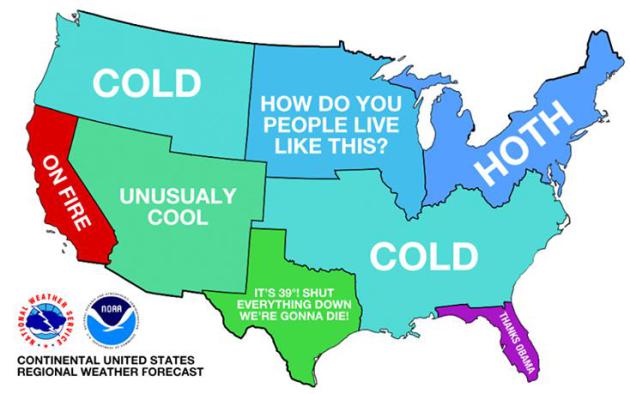
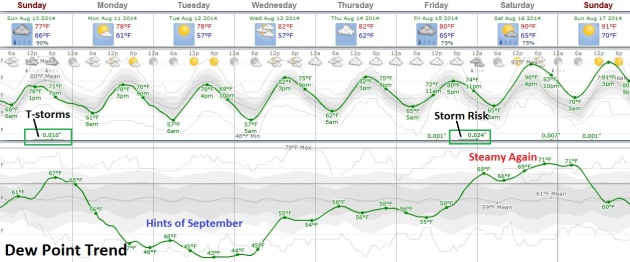
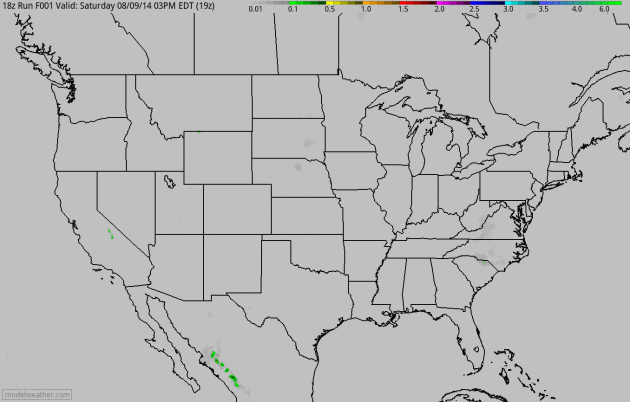
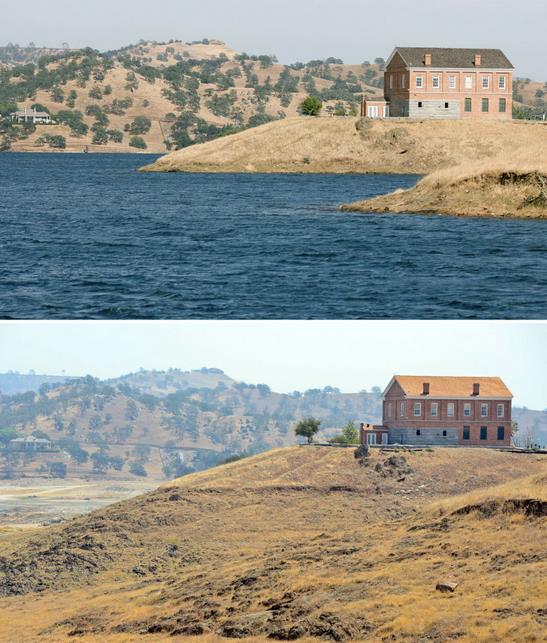
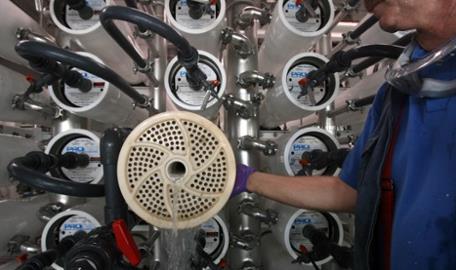
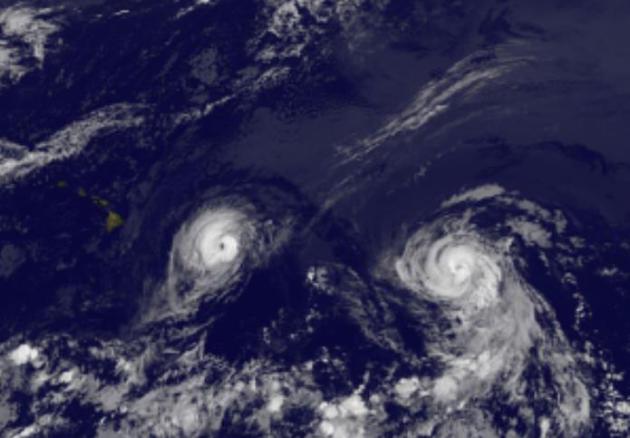
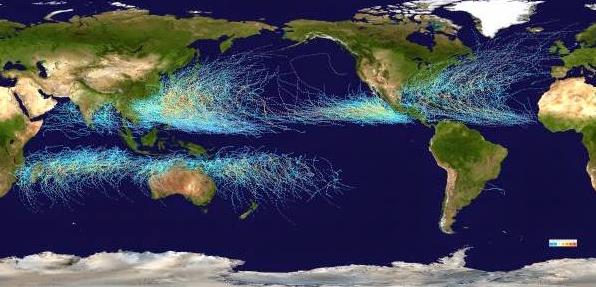
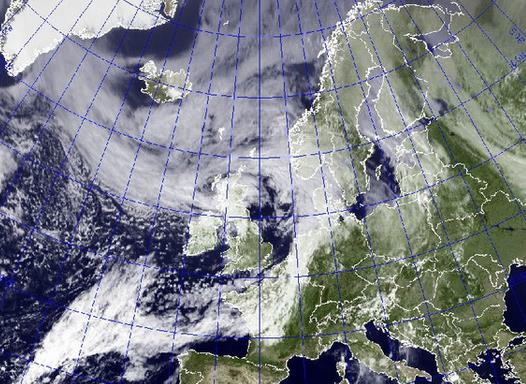
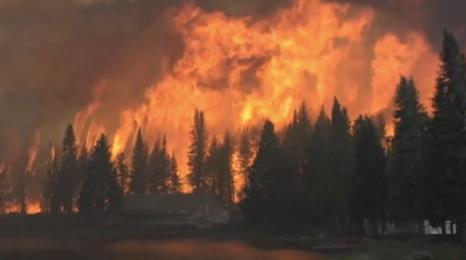
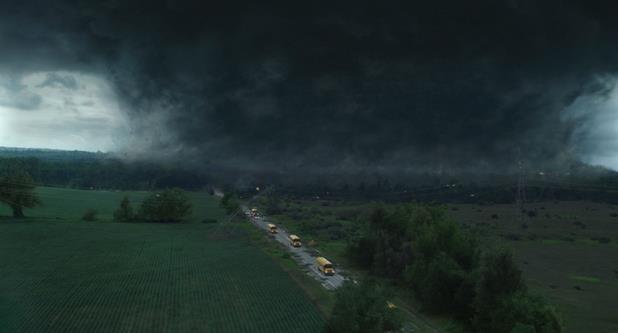


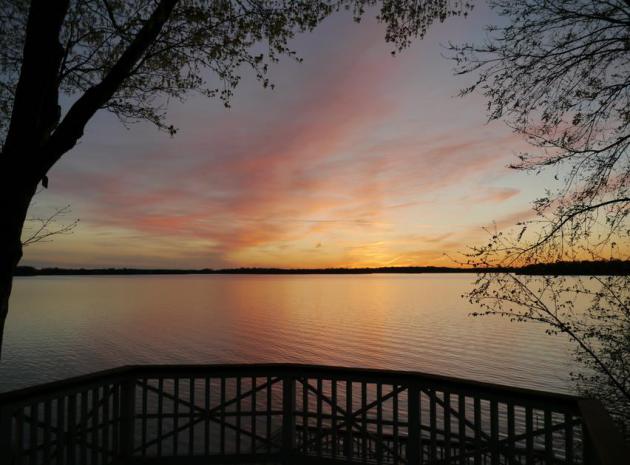


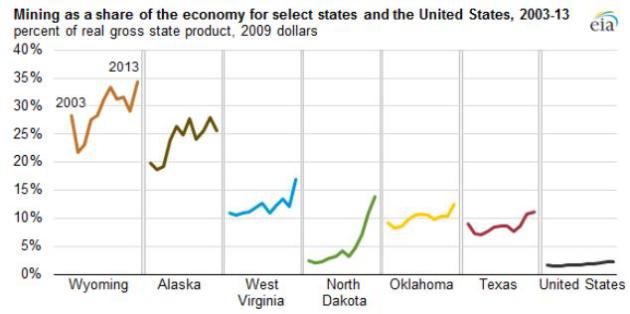
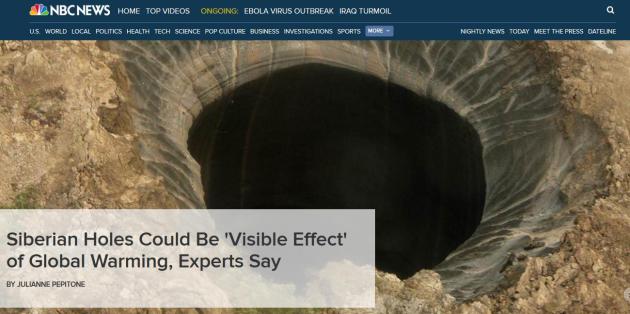
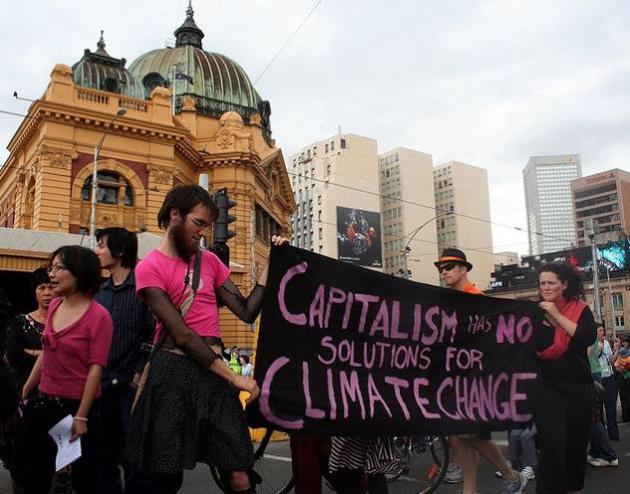
No comments:
Post a Comment